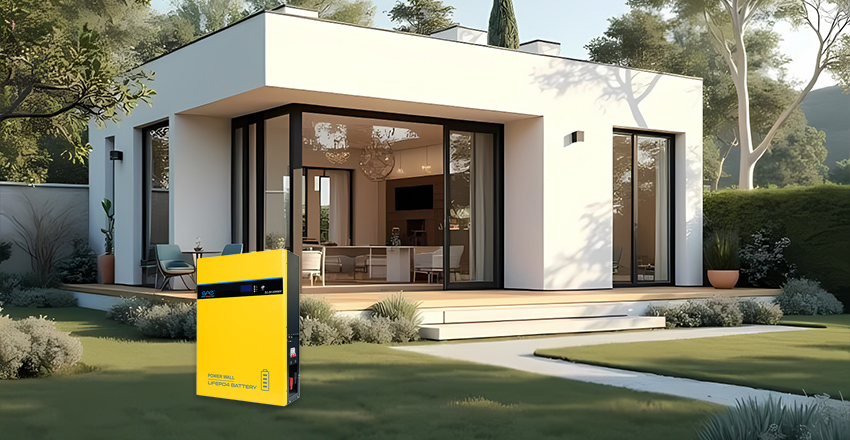Hybrid Solar Inverters combines solar power generation and energy storage, representing a cutting-edge form of smart and versatile energy use. They not only reduce the carbon footprint of homeowners but also reduce energy costs and provide a reliable power supply, all without compromising the aesthetics of modern homes. As the world shifts toward cleaner, greener energy solutions, hybrid solar inverters future-proof homes by offering compatibility with emerging technologies like electric vehicles and smart home systems. Additionally, homes equipped with hybrid solar inverters tend to have higher resale value, making them a smart investment for homeowners.

For example, hybrid solar inverters offer many benefits such as maximizing self-consumption of solar energy. Most traditional solar installations produce more energy than a home can consume during the day, even at peak times, when the sun is at its highest. This excess energy is normally returned to the grid or lost without a hybrid inverter.
Hybrid inverters work around this problem by storing surplus solar energy in batteries for later use. Homeowners can use solar energy not only during the day, but in the evening or even at night, greatly reducing their reliance on the grid. By more efficiently storing and using their solar power, homeowners can greatly decrease their electricity bills and maximize the output from their solar panels.
The Importance of Hybrid Solar Inverter in Energy Independence As the world transitions to a future where electricity production is decentralized via solar panels, battery storage systems and smart inverters, households will have the potential to become completely off-grid, meaning they will not rely on the grid to provide electricity, particularly if the grid is pushed to breaking point or becomes expensive.
Hybrid inverters serve as a reliable and efficient backup during grid outages or fluctuations in electricity prices. Inverters automatically transition to battery backup mode when there is no grid power and keep essential appliances running. This constant energy supply shields homeowners from power outages and ensures that they do not completely rely on the grid for their electrical requirement.
This high level of self-sufficiency is especially useful in remote regions or areas that suffer regular power outages.
With the growing number of homeowners utilizing green technologies, hybrid solar inverters are playing a significant role in minimizing a building’s carbon footprint. Solar energy hybrid inverters contribute to this goal by optimizing the storage and utilization of solar energy, therefore decreasing the dependence on fossil fuels. This, in turn, reduces the total environmental impact of energy use.
Because homeowners can use renewable solar energy to power their homes rather than drawing power from grid electricity powered by fossil fuels, hybrid systems accommodate a cleaner power system. The shift brings down greenhouse gas emissions, but it also plays a role in the transition more broadly for a cleaner energy model for homes.
Many hybrid solar inverters come with smart energy management systems that allow homeowners to monitor and control their solar energy consumption on-the-fly. With easy-to-use mobile apps or web interfaces, homeowners can monitor their energy production, consumption, and battery levels at any time.
These inverters deploy AI algorithms that help them make smart decisions about when to store energy, and when to pull energy from the battery or the grid. It could choose to store excess energy during the day, for example, and draw power from the grid at night in off-peak hours when electricity prices are low. Some systems even give homeowners the option of establishing preferences or schedules that can help their homes be powered as efficiently as possible, ultimately leading to savings on energy over time.
If it’s hybrid solar inverter, it can be fitted easily to your available solar energy system; therefore it also helps in saving lots of money. From small homes with a few panels to larger systems with multiple panels and battery storage, hybrid inverters can be tailored to suit the load and optimized energy production and storage.
Besides solar power, certain hybrid inverters even provide interface to alternative power sources, like wind turbines, making your home greener. Hybrid inverters offer flexibility, making them unrivaled when it comes to scaling and future-proofing homes where more sustainable energy options might be added later on as technology improves.
Hybrid solar inverters are impressive on many levels: Their price can often be one of their most attractive features. Although the up-front cost of a hybrid system may be higher than a standard solar system, the savings over time make it a valuable addition. Hybrid inverters optimize self-consumption of solar energy, helping homeowners save on monthly electricity bills. In the long run, energy cost savings can balance out with installation costs.
Hybrid solar inverters represent a key component of the future of sustainable living. By combining solar power generation with energy storage capabilities, they empower homeowners to optimize their energy consumption and reduce reliance on traditional grid electricity. The ability to store excess solar energy for use during off-peak hours or cloudy days enhances self-sufficiency, ultimately lowering electricity costs and minimizing environmental impact.